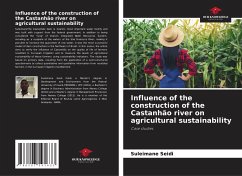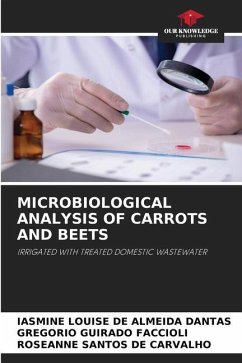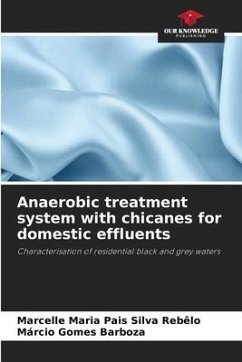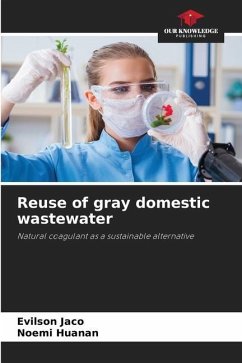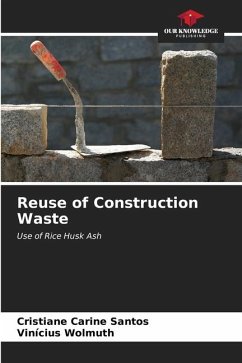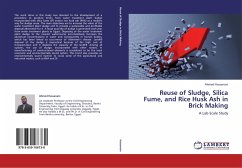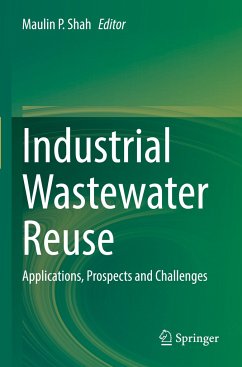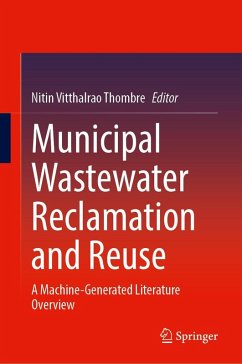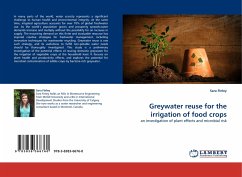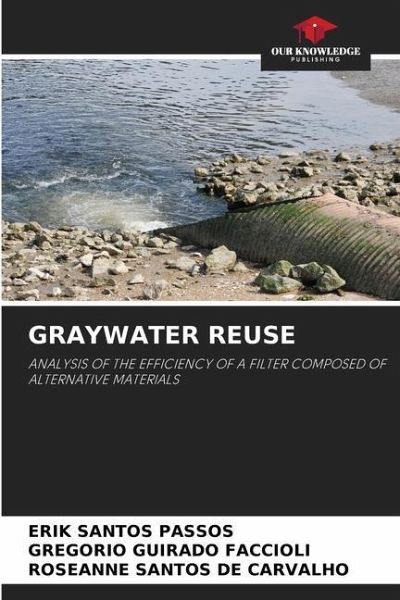
GRAYWATER REUSE
ANALYSIS OF THE EFFICIENCY OF A FILTER COMPOSED OF ALTERNATIVE MATERIALS
Versandkostenfrei!
Versandfertig in 6-10 Tagen
40,99 €
inkl. MwSt.

PAYBACK Punkte
20 °P sammeln!
There are many reasons that lead to water scarcity, ranging from poor territorial distribution to the contamination of water sources. Techniques and solutions are needed, such as the reuse of grey water or the use of rainwater for non-potable purposes. In order to combine the reuse of waste with the reuse of graywater, the book's main objective was to evaluate the efficiency of an alternative filter with used sponges, biochar based on orange bagasse, and construction waste to treat graywater from sinks. The graywater samples in the study were collected from a men's restroom located on the firs...
There are many reasons that lead to water scarcity, ranging from poor territorial distribution to the contamination of water sources. Techniques and solutions are needed, such as the reuse of grey water or the use of rainwater for non-potable purposes. In order to combine the reuse of waste with the reuse of graywater, the book's main objective was to evaluate the efficiency of an alternative filter with used sponges, biochar based on orange bagasse, and construction waste to treat graywater from sinks. The graywater samples in the study were collected from a men's restroom located on the first floor of the biology and forestry engineering laboratory complex at the UFS, São Cristóvão Campus. The treatment met the hypothesis, although it did not produce effluent for reuse in gardens and car washing due to the turbidity value, it proved effective in filtration, highlighting the sustainability of materials and their impacts, as well as proposing its application as a technology to meet the socio-environmental indicators of the Sergipe Judiciary.



